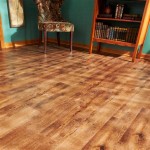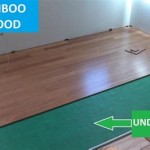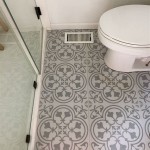How to Seal Plywood Subfloor
A plywood subfloor is a common and affordable option for flooring, but it is important to seal it properly to protect it from moisture and damage. Sealing the subfloor will also help to reduce noise and improve the overall performance of the flooring.
There are a few different types of sealers that can be used on plywood subfloors, but the most common and effective type is a polyurethane sealer. Polyurethane sealers are available in both water-based and solvent-based formulas. Water-based sealers are easier to apply and clean up, but solvent-based sealers are more durable and provide better protection.
Before applying the sealer, the subfloor must be clean and dry. Any dirt or debris should be removed with a broom or vacuum cleaner. If the subfloor is damp, it should be allowed to dry completely before applying the sealer.
The sealer should be applied in thin, even coats. It is important to allow each coat to dry completely before applying the next coat. The number of coats required will vary depending on the type of sealer used and the condition of the subfloor.
Once the sealer has been applied, it should be allowed to cure for at least 24 hours before installing the flooring. This will give the sealer time to dry and harden, providing maximum protection for the subfloor.
Benefits of Sealing a Plywood Subfloor
There are several benefits to sealing a plywood subfloor, including:
- Protects the subfloor from moisture and damage
- Reduces noise
- Improves the overall performance of the flooring
- Makes the subfloor easier to clean
- Extends the life of the subfloor
How to Choose the Right Sealer for Your Plywood Subfloor
There are a few things to consider when choosing a sealer for your plywood subfloor, including:
- The type of flooring you are installing
- The condition of the subfloor
- The climate in your area
- Your budget
It is important to consult with a professional if you are unsure which type of sealer is right for your project.
How to Apply a Sealer to a Plywood Subfloor
Applying a sealer to a plywood subfloor is a relatively simple process. However, it is important to follow the manufacturer's instructions carefully to ensure that the sealer is applied correctly.
Here are the general steps for applying a sealer to a plywood subfloor:
- Clean the subfloor with a broom or vacuum cleaner.
- If the subfloor is damp, allow it to dry completely before applying the sealer.
- Stir the sealer thoroughly before applying.
- Apply the sealer in thin, even coats. Use a brush or roller to apply the sealer.
- Allow each coat to dry completely before applying the next coat.
- Once the sealer has been applied, allow it to cure for at least 24 hours before installing the flooring.
Conclusion
Sealing a plywood subfloor is an important step in protecting it from moisture and damage. It is also a relatively simple process that can be done by anyone with a few basic tools. By following the steps outlined in this guide, you can ensure that your plywood subfloor is properly sealed and protected.

Diy Painted Plywood Subfloor Picklee

Amazing Painted Plywood Subfloor A How To

How To Paint A Plywood Floor The Easy Way Semigloss Design

Amazing Painted Plywood Subfloor A How To

How To Paint A Plywood Floor The Easy Way Semigloss Design

Amazing Painted Plywood Subfloor A How To

Diy Plywood Floors Part 2 How To Stain And Seal

9 Essential Tips To Avoid Common Subfloor Mistakes
Subfloor Perimeter Expansion Gap Diy Home Improvement Forum

How To Paint A Plywood Floor The Easy Way Semigloss Design
See Also







